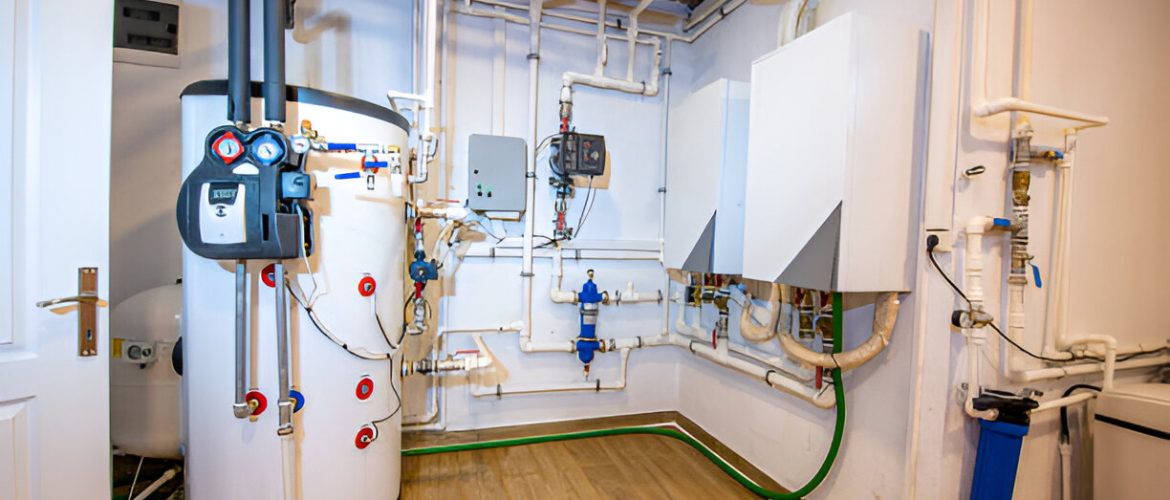When it comes to industrial and commercial heating solutions in Dubai, hot water boilers and steam boilers are two of the most common options. While both types serve the purpose of heat generation, they differ significantly in their design, operation, and suitability for various applications. Choosing the right boiler system is essential to ensure efficient performance, energy savings, and long-term reliability.
This blog compares hot water boilers and steam boilers, helping businesses understand their differences and decide which system best fits their needs.
What Are Hot Water Boilers?
Hot water boilers are systems designed to heat water and distribute it throughout a building or industrial facility via pipes. The heated water is typically circulated through radiators, coils, or other heat exchangers to provide heating for spaces, processes, or equipment.
Key Features of Hot Water Boilers:
- Operate at lower temperatures (generally below 250°F or 120°C)
- Produce hot water rather than steam
- Use a pump to circulate water through the system
- Suitable for closed-loop systems, where water is continuously recycled
Common Applications of Hot Water Boilers:
- Space heating for large buildings, including hotels and commercial offices
- Industrial processes requiring controlled heating
- HVAC systems in healthcare and educational institutions
What Are Steam Boilers?
Steam boilers, as the name suggests, are designed to produce steam by heating water above its boiling point. The steam generated is then distributed through a piping system for various applications, including power generation, sterilization, and heating.
Key Features of Steam Boilers:
- Operate at higher temperatures and pressures than hot water boilers
- Convert water into steam for distribution
- Require careful monitoring of pressure and temperature
- Typically use pressure relief valves for safety
Common Applications of Steam Boilers:
- Power generation in industrial plants
- Sterilization in hospitals and laboratories
- Food processing industries for cooking, drying, and pasteurization
- Textile manufacturing and dyeing
Key Differences Between Hot Water Boilers and Steam Boilers
| Feature | Hot Water Boilers | Steam Boilers |
| Output | Hot water | Steam |
| Operating Temperature | Lower (below 250°F / 120°C) | Higher (above 212°F / 100°C) |
| Pressure | Lower pressure systems | High-pressure systems |
| Efficiency | More energy-efficient due to lower heat loss | Slightly less efficient due to higher heat loss |
| Circulation | Pump-driven water circulation | Gravity-driven or pump-assisted steam flow |
| Applications | Space heating, HVAC, process heating | Sterilization, power generation, food processing |
| Maintenance | Easier and lower cost | More complex and costly |
Advantages of Hot Water Boilers
- Energy Efficiency
Hot water boilers typically consume less fuel than steam boilers because they operate at lower temperatures, resulting in reduced heat loss and greater overall efficiency. - Lower Maintenance Costs
Since hot water systems operate at lower pressures, they experience less wear and tear on components, reducing maintenance needs and extending the boiler’s lifespan. - Safe Operation
Hot water boilers are generally safer to operate due to their lower pressure and temperature. There is a lower risk of pressure-related accidents compared to steam boilers. - Consistent Temperature Control
Hot water boilers offer precise temperature control, making them ideal for HVAC systems in buildings where maintaining a steady temperature is crucial.
Advantages of Steam Boilers
- High Heat Output
Steam boilers can deliver large quantities of heat quickly, making them ideal for industrial processes requiring rapid heating or high-temperature steam. - Versatility
Steam boilers can be used in a wide range of industries, from power plants to food processing and textile manufacturing, due to their ability to provide both direct and indirect heating. - Sterilization Capability
Steam is an effective medium for sterilization, making steam boilers essential in hospitals, laboratories, and pharmaceutical manufacturing. - Power Generation
Steam is widely used in power plants to drive turbines for electricity generation, making steam boilers an indispensable part of the energy sector.
Which Boiler System Should You Choose?
The choice between a hot water boiler and a steam boiler depends on several factors, including your industry, application, and specific operational requirements. Below are some key considerations:
- Application Requirements
- If your facility needs heating for space or low-temperature industrial processes, a hot water boiler is the better option due to its efficiency and lower operational costs.
- If you require high-pressure steam for sterilization, power generation, or high-temperature processes, a steam boiler is essential.
- Energy Consumption
Hot water boilers consume less energy, making them a cost-effective choice for facilities focused on energy efficiency. - Budget and Maintenance
Hot water boilers have lower initial costs and require less maintenance than steam boilers, making them suitable for facilities with budget constraints or limited technical staff. - Safety Concerns
Hot water boilers operate at lower pressures, reducing the risk of accidents. Steam boilers require rigorous monitoring and safety protocols due to their high-pressure operation.
Understanding the differences between hot water boilers and steam boilers is essential for businesses in Dubai looking to invest in a reliable heating system. While hot water boilers offer energy efficiency and lower maintenance costs, steam boilers excel in applications requiring high-pressure steam and rapid heat output. Evaluating your specific needs, budget, and operational requirements will help you make the right choice.
Whether you are in the food processing industry, healthcare sector, or power generation, selecting the appropriate boiler system ensures efficient operations and long-term cost savings.
FAQs
1. Which boiler is more energy-efficient: hot water or steam?
Hot water boilers are generally more energy-efficient because they operate at lower temperatures and pressures, resulting in less heat loss.
2. Can hot water boilers be used for industrial applications?
Yes, hot water boilers are suitable for low-temperature industrial processes and space heating in large commercial buildings.
3. What safety measures are required for steam boilers?
Steam boilers require pressure relief valves, automatic shut-off controls, and regular inspections to ensure safe operation under high pressure.
4. How often should industrial boilers be serviced?
Industrial boilers should be serviced at least once a year. However, high-pressure steam boilers may require more frequent inspections and maintenance.




No comments yet.